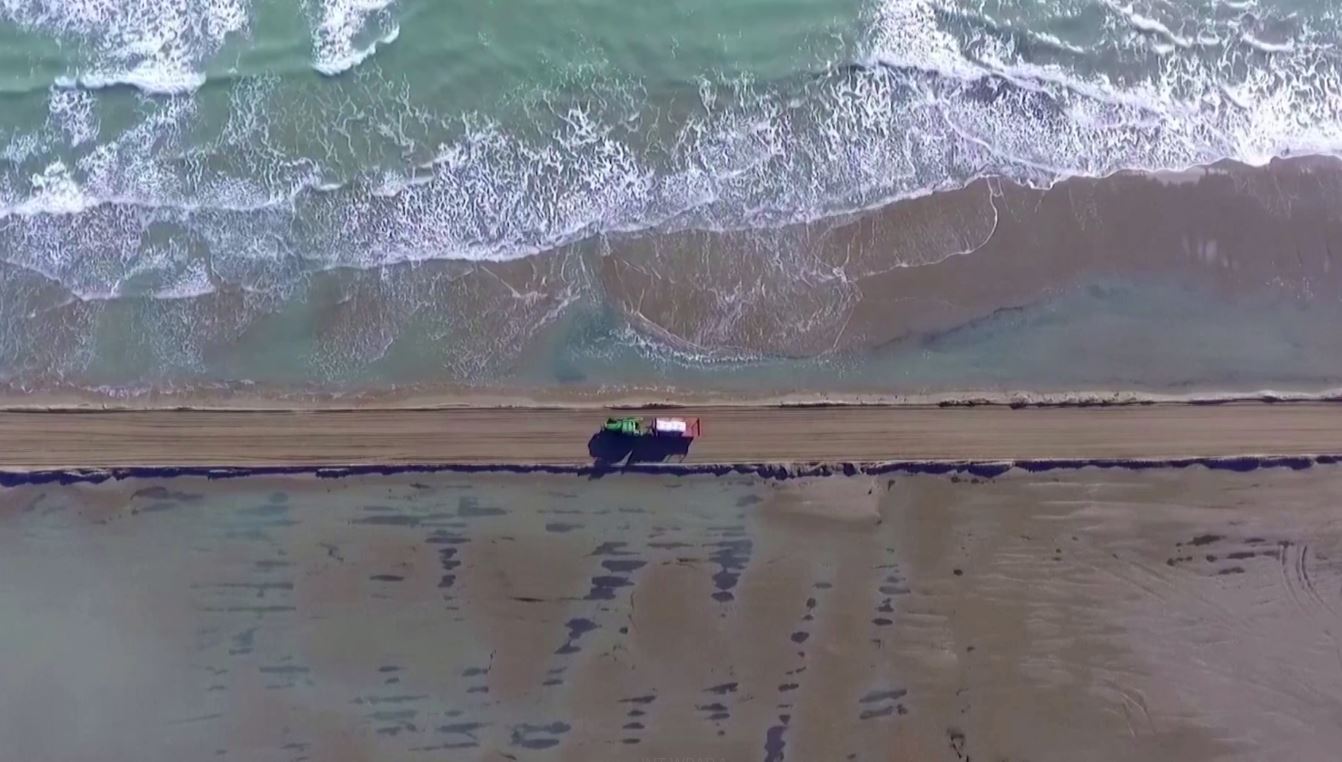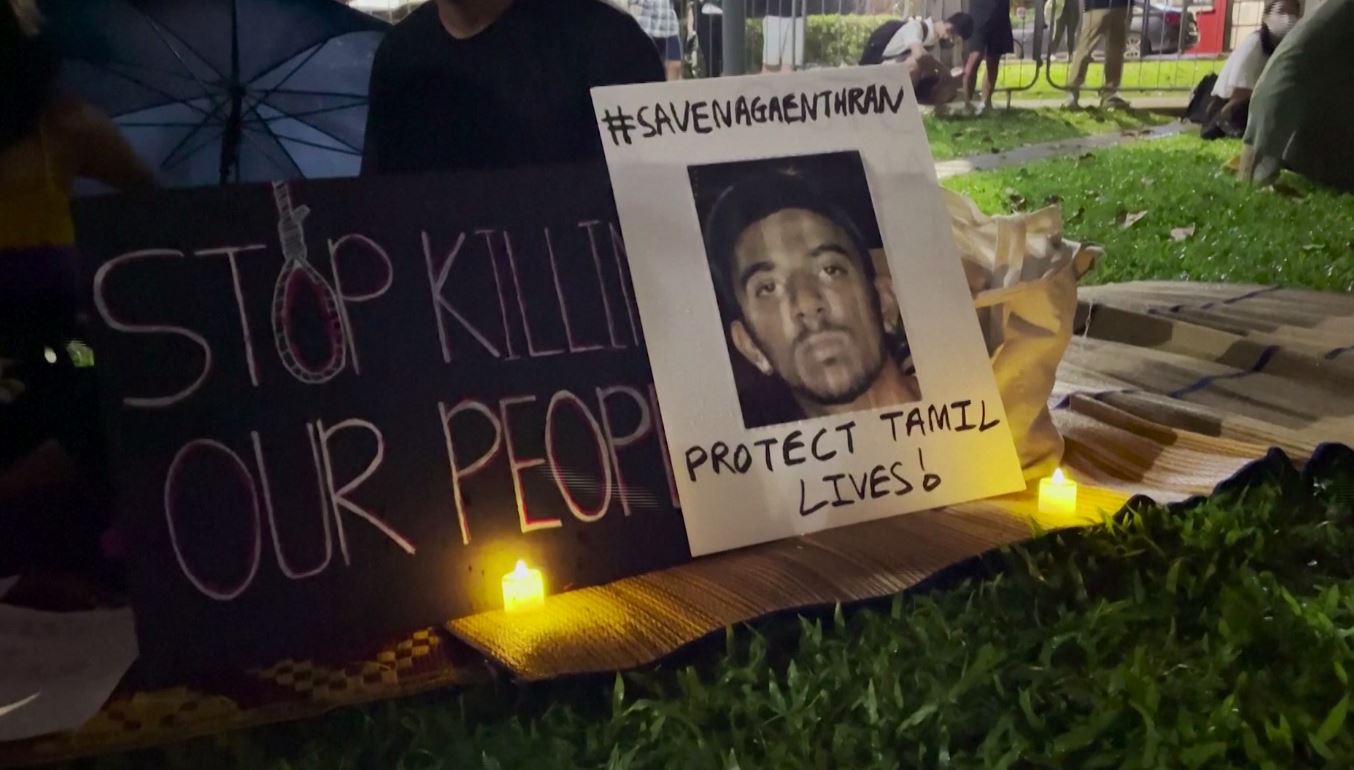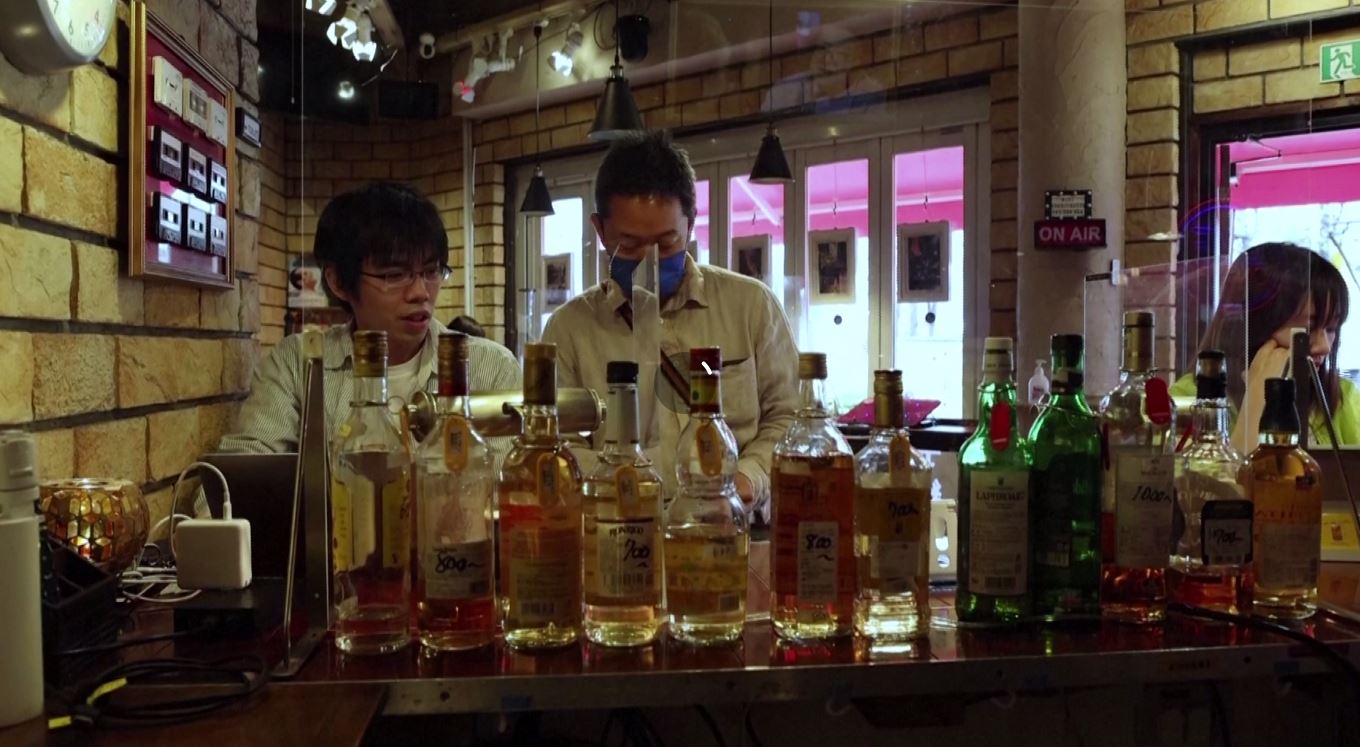Sand Crisis Looms as World Population Surges
PHOTO: UN EXPERTS SAYING WORLD IS FACING SAND SHORTAGE AND CALLING ON GOVERNEMENT TO TAKE MEASURES NOW FILE VARIOUS OF SAND ON BEACHES AND DUNES IN VARIOUS COUNTRIES FILE OF CONSTRUCTION SITES IN CHINA AND GERMANY FILE OF SAND
INTERNATIONAL: A U.N. report on Tuesday (April 26) called for urgent action to avert a "sand crisis," including a ban on beach extraction as demand surges to 50 billion tons a year amid population growth and urbanization.
Sand is the most exploited natural resource in the world after water, but its use is largely ungoverned, meaning we are consuming it faster than it can be replaced by geological processes that take hundreds of thousands of years, the U.N. Environment Programme (UNEP) report says.
UNEP's Pascal Peduzzi, who coordinated the report written by 22 authors, said global consumption for use in glass, concrete, and construction materials has tripled over two decades to reach 50 billion tons a year, or about 17 kilograms per person each day, which is harming rivers and coastlines and even wiping out small islands.
In a Sri Lankan river, sand removal had reversed the water flow, meaning that ocean water was heading inland and bringing salt-water crocodiles with it, he told journalists.
Demand is now seen as shifting to Africa where villagers often remove sand from beaches to build growing cities. In some cases, this can make coastlines more vulnerable to the impact of climate change, such as more powerful storms, the report said.
Among the report's recommendations were a ban on beach extraction and the creation of an international standard for marine dredging that can harm ocean biodiversity.
It also called for reducing demand by reusing sand from recycled materials like concrete and mining tailings instead of using naturally occurring sand.
Peduzzi who coordinated the report written by 22 authors said that some of the impacts of over-exploitation were already being felt. In the Mekong River - the longest in Southeast Asia - sand extraction was causing the delta to sink, leading to the salinization of previously fertile lands.
Singapore Court Dismisses Last-minute Challenge to Malaysian's Execution
PHOTO: MOTHER OF DEATH ROW INMATE NAGAENTHRAN DHARMALINGAM CRYING AND HUGGING ACTIVISTS OUTSIDE OF COURT MOTHER WALKING INTO SUPREME COURT SOUNDBITES FROM ACTIVIST PROTESTERS AT CANDLELIGHT VIGIL AT HONG LIM PARK BANNERS SHOW
INTERNATIONAL: A Singapore court on Tuesday (April 26) dismissed a last-ditch legal challenge by the mother of a Malaysian drug trafficker on death row, paving the way for his execution to be carried out on Wednesday as planned.
Nagaenthran Dharmalingam, 34, has been on death row for more than a decade for trafficking 44 grams (1.5 oz) of heroin into Singapore, which has some of the world's toughest narcotics laws. His lawyers had filed multiple appeals against his execution on the grounds that he has an intellectual disability.
After the court delivered its decision, Dharmalingam and his family reached through a gap in a glass screen to grasp each other's hands tightly as they wept. His cries of "ma" could be heard around the courtroom.
Nagaenthran's case has attracted international attention, with a group of United Nations experts and British billionaire Richard Branson joining Malaysia's prime minister and human rights activists to urge Singapore to commute his death sentence.
His lawyers and activists have said Nagaenthran's IQ was found to be at 69, a level recognized as an intellectual disability. However, the courts found he knew what he was doing at the time of his crime, and ruled there was no admissible evidence showing any decline in his mental condition.
Around 300 people also attended a candlelight vigil in a Singapore park on Monday (April 25), to protest against Dharmalingam's execution and that of another Malaysian on death row in Singapore, Datchinamurthy Kataiah, who was convicted of trafficking 45 grams of diamorphine.
Coffee, Tea and Nagging at Japan's Anti-procrastination Cafe
PHOTO: CUSTOMERS WORKING IN CAFE, CUSTOMER WRITING DOWN WORK GOAL UPON ENTERING CAFE, CAFE OWNER CHECKING IN WITH CUSTOMERS ON PROGRESS, SOUNDBITES FROM CUSTOMERS AND CAFE OWNER
INTERNATIONAL: Writers under deadline go to Tokyo's "Manuscript Writing Cafe" with the understanding that they can't leave until their work is done.
Recently opened in April in western Tokyo, the clean, well-lit place has 10 seats reserved for writers, editors, manga artists, and anybody else grappling with the written word and deadlines.
Upon entering it, customers will be handed a slip of paper on which they need to write down their names, writing goals, and the amount of time they need to finish.
The cafe staff will hold customers accountable by checking in with them on their progress. They can choose from “mild”, “normal” and “hard” - three levels of progress checks. Customers who choose “mild” will only get a verbal confirmation when they pay at the counter, and people who choose “normal” will get a progress check every hour. Those who decide to go “hard” on themselves will feel silent pressure from staff who will stand frequently behind them.
Cafe owner, Takuya Kawai, said these strict rules could help people improve concentration.
“It (the cafe) went viral on social media and people are saying that the rules are scary or that it feels like you're being watched from behind. But actually, instead of monitoring (customers), I’m here to support them. I would like everyone to finish their work,” said the 52-year-old Kawai, who’s also a writer himself.
Inspired by a famous Japanese tale for children – “The Restaurant of Many Orders” – which depicts a bizarre restaurant setting up specific instructions for customers before they enter the restaurant, Kawai says he aims to create a space where people will feel tense at first, but gradually relax and be able to focus on their work.
Unlike normal cafes where customers have a wide range of drinks on the menu to choose from, the cafe offers unlimited access to self-service coffee and tea bags, and food options are not available. Instead, it’s installed with high-speed Wi-Fi and charging ports at every seat.
Customers are charged 130 yen ($1.01) for the first 30 minutes and then 300 yen ($2.34) for every hour. They will not be able to pay until they finish the work they declared upon entering. According to Kawai, despite several people having to stay longer than the cafe’s operating hours, all customers have completed their goals and checked out safely.
With warm brick walls and a collection of fine liquor at the counter, the cafe was originally intended to be a live streaming studio, where guests would be invited to talk shows with an alcoholic beverage before an alcohol ban during the COVID-19 pandemic derailed Kawai's plans.
Now, Kawai said he has found a new meaning for this cafe, with more people coming here to write.
“I don’t know what kind of work might be born here. But I’m proud that I was able to offer my support so that scripts that were written here could be published to the world.”
























